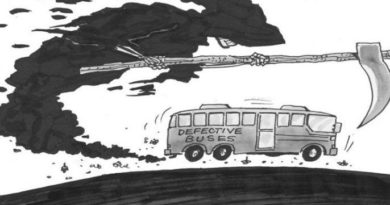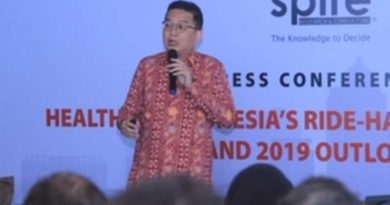OP-ED: Fight for rights, not for awards
 EDITORIAL – COLUMNIST
EDITORIAL – COLUMNIST
Abid by Thailand to have a forest reserve in Kaeng Krachan National Park in Phetchaburi listed as a Unesco World Heritage site (WHS) has brought public attention to the cultural identity of the ethnic Karen people. Experts at Unesco’s World Heritage Committee have delayed their decision to add Kaeng Krachan National Park — which was nominated in 2013 — on the heritage list after complaints by Myanmar about overlapping areas and a petition signed by the ethnic Karen in which they accused the Thai state of failing to recognise their cultural identity.
This year, the government also nominated Si Thep Historical Park along with historical Khmer-styled sanctuaries in the Northeast.
The government expressed high hopes that Unesco would designate the national park as a World Heritage site despite the fact that human rights activists were certain that the agency would listen to their petition and postpone the decision as in previous years.
The sessions, which began on Friday will continue until Wednesday. It has been reported that Thailand is also in the process of applying for membership on Unesco’s World Heritage Commission as it believes that having membership status would make it easier to pursue nominations and defend its choices if a dispute flares up as it did in the case of Preah Vihear — which soured relations between the country and its immediate neighbour to the east.
.
ADS by Cloud 9:
.
– SPACE RESERVE FOR YOUR ADVERTISEMENT –

On Friday, there were reports that the meeting on Kaeng Krachan had been postponed until yesterday morning. Meanwhile, some media outlets reported yesterday the park had eventually won UN’s recognition but there was no confirmation on Unesco’s website or that of the Ministry of Foreign Affairs.
In fact, Thailand’s attempt to win UN recognition for the forest complex which borders Myanmar has been tainted with a series of episodes of state violence against local ethnic Karens who faced brutal eviction from Bang Kloy Bon, the area where they had lived for generations, long before the forest was designated as a national park.
In 2011, park officers led by then chief Chaiwat Limlikhitaksorn stormed the village, and burned down houses, rice barns, and other property, forcing the Karen to abandon their homes for a new location.
Ko-ee Mimee, a Karen spiritual leader, was among those relocated by force. His last wish before passing away last year to go back and live on his land was never granted.
An activist who was involved in a campaign to have the poor ethnic Karen return to their village was murdered as the conflict peaked. The culprits have never been brought to justice. Meanwhile, Billy Porlajee, a Karen activist who dared to challenge state eviction has been missing since 2013.
It is widely believed that Billy became a victim of forced disappearance. Mr Chaiwat was suspended from his work and went to trial for his alleged role in the disappearance but was later acquitted due to “lack of evidence”. The officer was later reinstated to a senior position in the parks department.
Because of petitions by Billy’s family and support from local and global rights advocacy groups, the Department of Special Investigation which had previously dismissed calls that it take on the case, changed its stance and stepped in. However, there still has been no progress.
Human rights activists have slammed the government for failing to solve long-standing land rights disputes with local communities.
.
ADS by Cloud 9:
.
– SPACE RESERVE FOR YOUR ADVERTISEMENT –

In June 2018, the Administrative Court ordered the Office of National Parks to compensate the Karen for demolishing their homes. Human rights activists Surapong Kongchantuk noted that such a verdict would mean that the Thai state recognises the Karens’ existence; However, the state defiantly dismissed their petition to return home and give them back their rights to stay.
Raweewan Phuridet, secretary-general of the Natural Resources and Environmental Policy and Planning, a core agency responsible for WHS nomination, said the government has addressed questions raised by the World Heritage Committee regarding the right to inhabit the forest reserve in question.
She said the Thai team at Unesco should assure the Karen villagers in Kaeng Krachan National Park that they “have the state’s support to live within the forest limits”.
Indeed, such a feel-good statement is too ambiguous and seems to be just a tactic to win the Unesco’s nod but in reality, it’s obvious that the Karens are still suffering.
Eventually, the government could have Kaeng Krachan National Park designated as a prestigious site, due to diplomatic lobbying. But the government should think beyond the WHS status and do the right thing by recognising the Karens’ identity.
EDITORIAL
BANGKOK POST EDITORIAL COLUMN
These editorials represent Bangkok Post thoughts about current issues and situations.
Email : [email protected]
.
ADS by Cloud 9:
.
– SPACE RESERVE FOR YOUR ADVERTISEMENT –


All photographs, news, editorials, opinions, information, data, others have been taken from the Internet ..aseanews.net | [email protected] |.For comments, Email to :D’Equalizer | [email protected] | Contrib









